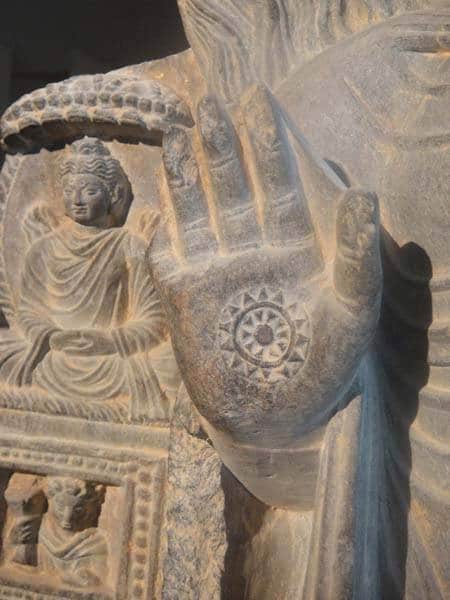How important will it be that cultural heritage plays a role as part of Afghanistan’s peace negotiation process?

Author: Nasratullah Hewadwall (independent opinion)
The importance of cultural heritage in the ongoing peace negotiation process relates to our past and future. Our Afghan nation calls itself the owner of thousands of years of multi-cultural heritage and history. As honorable owners we need to guard our heritage which shows and proves our identity.
Both sides of the negotiation process are Afghans, and they live on this soil with a shared culture. One side is the Republic of Afghanistan’s government team, and the second side is the Taliban team, which calls itself the Islamic Emirate team.
For many in the international community as well as many more secular and moderate Muslims, the Talibs are seen as an Islamic extremist group, who not only follow pure Sharia but give it an additional extreme dimension. They represent a stance against multi-cultural heritage, and ideas connected to it in Afghanistan. Moreover, they see Taliban policy, their leaders and movement members as having no respect and interest in pre-Islamic or non-Islamic cultural heritage. The approach of the Taliban, as perceived and with some evidence from their past track record, worries people and creates anxieties around the issue of preserving heritage for our nation in the future. So, discussion and decision-making regarding cultural heritage is an important and vital element for Afghanistan’s future and peace. It’s about maintaining our role as owners of our past, and for giving our countrymen and women faith and trust in our country by showing them that we will not tolerate an erasure of our history and that we are proud of where we came from and will preserve it for our next generation’s future.
On September 12, the inter-Afghan peace negotiation process started. Both sides began a first conversation on a specified agenda, by which they will try to achieve an agreement for the country’s future. Both sides will discuss the different topics that will be brought up, to find solutions for them, and then as a following step they will add those elements to the constitution.
In my opinion, as part of the peace negotiation process, the role of cultural heritage is a key element.
It’s important to come to a decision and an agreement on thousands of years of Islamic, pre-Islamic and non-Islamic cultural heritage, and to a commitment to respecting multi-cultural heritage, and even more so, to commit to the preservation of all of them.
In Afghanistan cultural heritage is not about some decades, it’s about thousands of years of different empires, kingdoms, religions and beliefs, that designate our identity. So its role in the negotiation process is crucial and positive, because it’s ours, it’s our identity.
Also, let’s not forget that we share a common cultural heritage with other countries, regions and religions, such as Buddhism, Hinduism, Zoroastrianism, Judaism, and Paganism. We were influenced by these religions and cultures, and still are to this day. This just proves that Afghanistan is a multi-religious and multi-cultural country, and I am proud of it.
Also, we should respect the things that are important to other people in this world. This could be because it is precious to them, or because its educational and scientific and historic importance makes it a part of world heritage.
Another point I wanted to make is that the protection and preservation of cultural heritage has many benefits for us, economic and social benefits. It also plays a strong role in how we treat Afghanistan’s multi-ethnic groups – it holds great promise for community building.
In addition, I want to repeat that Afghanistan is a country that has always had strong relations with our neighbors and the region, because of our shared heritage. In many ways, we have more in common than one might initially think. Our common history, if preserved, can become a driving force in our sustainable development, foreign relations, community building, security, freedom and further cultural heritage can pave the way to a truly Afghan cultural stability.
Forbidding or destroying cultural heritage will turn us into an isolated country, but our past clearly shows us that Afghanistan was never an isolated country.
We must respect our cultural heritage and value it, and that is why it’s very important for us to include cultural heritage on the negotiation agenda, because cultural heritage is our identity, and we cannot ignore our identity and values.
